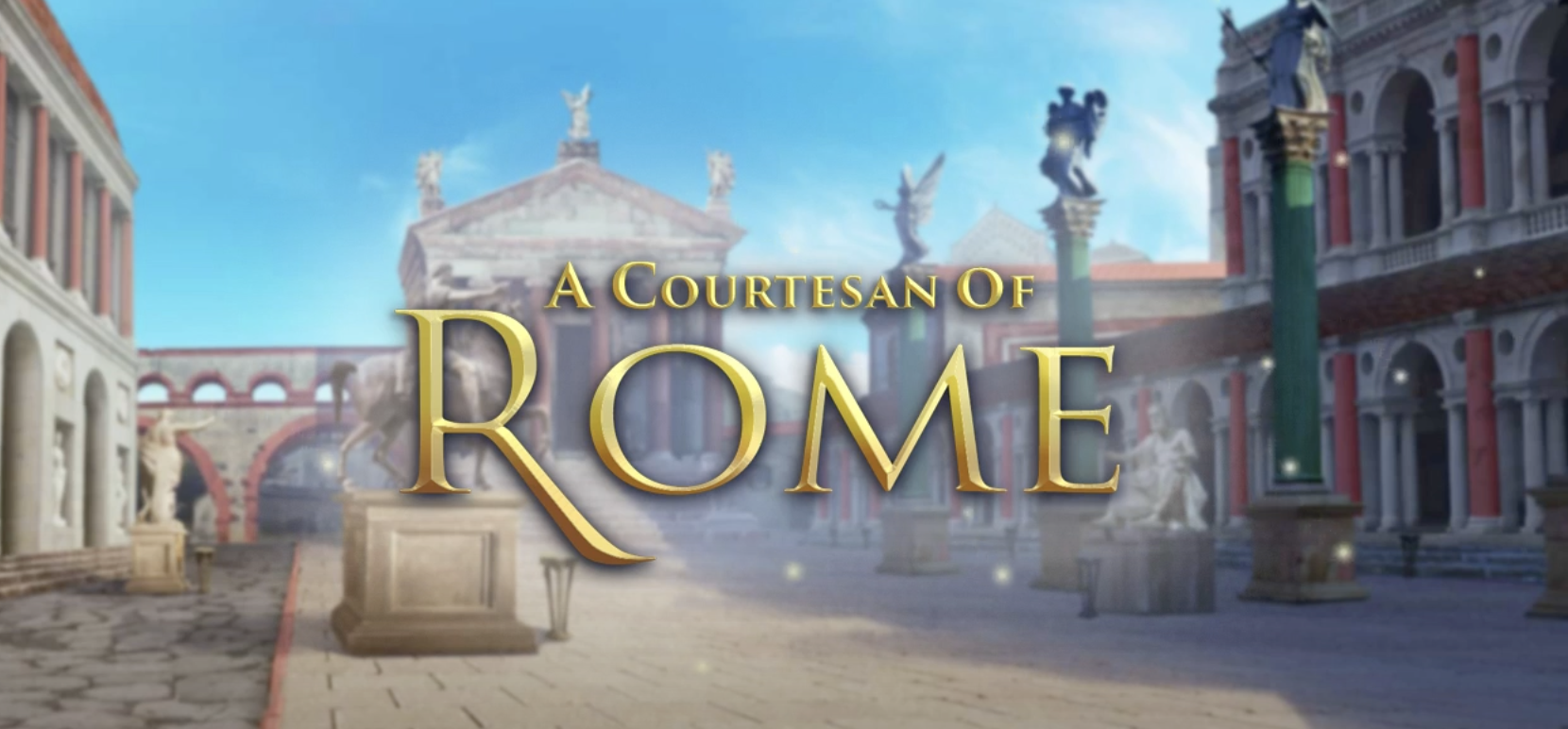Books & Culture
The Flexible Reality of Interactive Fiction Brought Me Agency During Lockdown
I escaped from the world around me playing digital choose your own adventure games

When my best friend and I first saw the apartment, we loved it. We thought it a little strange, a tad bruised, but overall it felt right – and it was a good price and we needed to move quickly. When you rent a basement apartment in New York City for the price, you don’t think that a global pandemic will force you to spend so much time inside of it. We expected to eat some meals there, sleep there, but mainly be at work or otherwise out. So, the issues that were apparent – it was a basement after all – didn’t seem like red flags. Maybe tiny yellow ones. And that price!
During lockdown, we noticed everything: the cockroaches living in the drains, the lack of natural light, the leaks in the exposed pipes throughout the apartment, and the dampness that turned into mold under my bed. Eventually, my roommate realized the apartment was illegal, which she told me by waking me up at 3am and showing me documents she had found online. The icing on the cake. We were both going through it – locked down in a basement without sunlight will make sense disappear.
The only thing I remember is that my mom called to tell me she had wrapped him in a blanket so that he could be comfortable.
During this time, I was teaching online and socializing online and dating online, which kept me somewhat busy. When I didn’t turn on the news and ignored the ambulance sirens and the 7pm clapping, I could pretend that everything was “fine.” But then my grandmother died. Later, my cousin, in that strange period when we were not out of the woods, but we were not longer in the house. Earlier in the year, my great aunt. Sometime during lockdown, my family dog died. I can’t remember at all when this happened; the only thing I remember is that my mom called to tell me she had wrapped him in a blanket so that he could be comfortable. This is how time moved in lockdown: slow, long days all morphed into one so that even time of death failed to stand out. None of them died from Covid; they all passed from other sicknesses that I forgot existed: old age, cancer, aneurysm, doggy old age. Suddenly, somewhat busy was not holding me together anymore. I wanted to escape.
In college, I had played the Kim Kardashian game (Kim Kardashian: Hollywood) and the Demi Lovato game (Demi Lovato: Path to Fame) for a few weeks each. The ads were all over social media. They had similar plots. You played your own version of the up-and-coming star and you rose to fame in either Kim or Demi’s orbit. I would play for a while and get really into it; then I would get busy or bored and move on.
I found these kinds of games again in Lock Down. In Digital Interactive Fiction apps, reality is flexible. It lives under your thumb, because of your thumb; you move the small, predictable world along. You have power. When I downloaded Choices, I did so because I wanted to feel immersed in something, but I suspect that part of it was that I couldn’t control what happened in a book or a show like I could in Episodes or Choices or Chapters. Just like in life at that moment, I was along for the ride.
Interactive Fiction Apps let the player influence the plot and their character through the decisions they make. It is part literature, part video game. These kinds of games emphasize that your choice affects the ending. Your choices can determine who likes you, who you end up with, if you die, or if you succeed. I don’t know if your character is pre-destined to win Love Island: The Romance Game, but you play a part in how you get there and who you get there with.
You want a slammin, expensive looking outfit that all the other characters will comment on? You need diamonds.
My first story was A Courtesan of Rome, in which you play a courtesan who gets mixed up in the fall of the Roman Empire. I chose it because it was so far away from my present day and I like history. I read through this first story with vigor and, yes, paid for the extra diamonds (the money in these worlds) so I could get better clothes and better story choices. You want to go on a date with the new bombshell? You need diamonds. You want a slammin, expensive looking outfit that all the other characters will comment on? You need diamonds. I became just as obsessed when I found Love Island: the Romance Game, which is influenced by the real reality TV show it is based on, with which I’m equally obsessed.
Even though these are technically games, getting all of Britain’s votes or toppling the Roman Empire is not the point. While it was important for my mental health that for some amount of time a day I was at a beachside villa and not in my bedroom, what kept me wanting to play was my curiosity at how the story might unfold. Or, more specifically, how I made the story unfold. I gravitated towards the games with plots, and clear endings. I liked playing, but I wanted a closed circle. The Kim and Demi games seemed never ending. I don’t even know if they have conclusions, because I’ve never played long enough to get there. Playing through these different stories in Lock Down was like reading a juicy novel or watching the real Love Island, except I could influence what happened inside the story. It was amazing, powerful.
Interactive Fiction is not new. Choose Your Own Adventure (CYOA) Fiction has been around since the late 70s/early 80s. I remember reading CYOAs as a class in grade school in the 2000s. During lunch, one of the lunch moms – the hot one – would read us R.L Stine books. He had his own series of CYOA books with his signature creepy twist. The lunch mom would read until she hit a decision point and then we would vote. In R.L. Stine books your character can die or get eaten by a clown or something horrible, but it was still fun. High stakes, but fun. We eventually stopped because some kids complained about being scared.
I was always more invested in my plots and my plans and the story of the story in my head.
Maybe this is where my love of choice came from, but I always thought this way. When other kids imagined themselves as Hermione or Harry Potter, I imagined myself—a character— into their world as an essential part of that world and also as a mysterious person who everyone really liked. I was always more invested in my plots and my plans and the story of the story in my head. Can you believe I became a writer?
With technology, Interactive Fiction has gone digital, which has opened a whole new visual world for readers to play with. Not only can I influence the plot, but I also make the character. For example, I always use the name Leo for Love Island. My favorite iteration of her has curly red shoulder length hair, green eyes, and ivory skin. I remember her entering the villa in a gold bathing suit and leaving everyone else breathless. In A Courtesan of Rome, they suggested a name, Arin, and I took it. I did the same with Arin’s look: long orange gown, brown curly hair half up-half down, and brown skin. I used to keep my own name, but it felt strange during lockdown. I didn’t want to play as myself. I already was myself. Designing your avatar is essential to immersing yourself in the game. There are a set number of aesthetic options and fun things like tattoos are extra diamonds, but, generally, you can be whoever you want. It’s your story. You can be yourself or the hot lunch mom or someone entirely from your imagination.
During the worst of the Covid Pandemic, in a sickly basement apartment in New York City, I stopped being able to imagine myself out of reality. It was everywhere and no plot for the world I imagined in my head would satiate me. Love stories on my phone, though? They did. They had a calming, focusing effect. I would zone in on Leo or Arin and just be them. When I was playing, I wasn’t myself. I made bad decisions – like murdering my boyfriend so that I could hook up with Marc Antony – because I could. I could just have fun. And fun that didn’t feel mindless. I was doing something: I was reading and choosing and playing and being entertained. I don’t know where my sanity would be without these story game apps. I don’t know what I would have done if I didn’t have a place to go.
In the virtual world, I had the power. I decided what things happened. I could go places, see people.
There were many things that pulled me toward these games, but one of them was definitely power. Who doesn’t want to control their own narrative? During lockdown, we were all so powerless. The only thing we could do was nothing, and there was no security in sitting tight. In the virtual world, I had the power. I decided what things happened. I could go places, see people. And no one died unless I wanted them to. If they did, I could just start over, find another route through the story where they survived. I no longer felt helpless.
When I asked my friends if any of them played apps like Choices or Episodes or Chapters, most of them politely said no. One asked “No. Do you?” in that way. And a couple admitted they did or had but knew how “bad” they are. And, listen, I know how bad they are too. I will admit that there are romance cliches, sometimes objectively bad writing, and some soft-core porn (which I never complain about to be honest), but this is just a part of the fun. The indulgence in cringe is alluring. It is the same reason I watch Netflix’s The Christmas Prince with my friends each holiday season: these “trashy” stories are terrible and so engrossing.
When I started to reflect on how these games made me feel less alone during Lock Down, I went searching for other people who felt the same about them. I found a whole community of people like me, who unabashedly love these games. Most of the platforms have their own reddit pages where people post their thoughts, jokes, and questions about different stories or books on each app. Small time story creators and narrative designers hired by the companies have significant followings on social media. Episode even shouts out their small- time creators on their Instagram page. (On Episode, anyone can design and publish a story.) So many people connect on social media to talk about their experiences. It’s like a book club.
In my search for validation, I also found research on Interactive Digital Fiction. For example, Dr. Leigh A. Hall studied how one interactive fiction app, Delight Games, made people with negative experiences of reading enjoy reading again (published in 2019 and 2020). Dr. Astrid Ensslin and her team at Writing New Bodies are developing a Digital Fiction app to be used in body-image bibliotherapy.
The fanbase and the conversations I had with both Dr. Hall and Dr. Ensslin made me rethink my experiences playing Interactive Fiction apps. I keep thinking about how happy I feel playing Love Island. I also keep thinking further back to reading and writing fanfiction about a band I obsessively loved when I was teenager. In both, I found an escape from the world around me, which doesn’t ask any of us what we want and a community who not only felt excited about writing, but also felt that our subject was just as important as any other. I love literary fiction and I love a juicy romance game. I think they both have value; they’re just different modes that scratch a different itch. All stories can make us think and wonder and feel. And if the story puts a smile on your face or makes you feel in control when the world seems like it’s imploding, I think it’s okay to indulge and enjoy. Isn’t enjoying it the best part of reading anyway?








